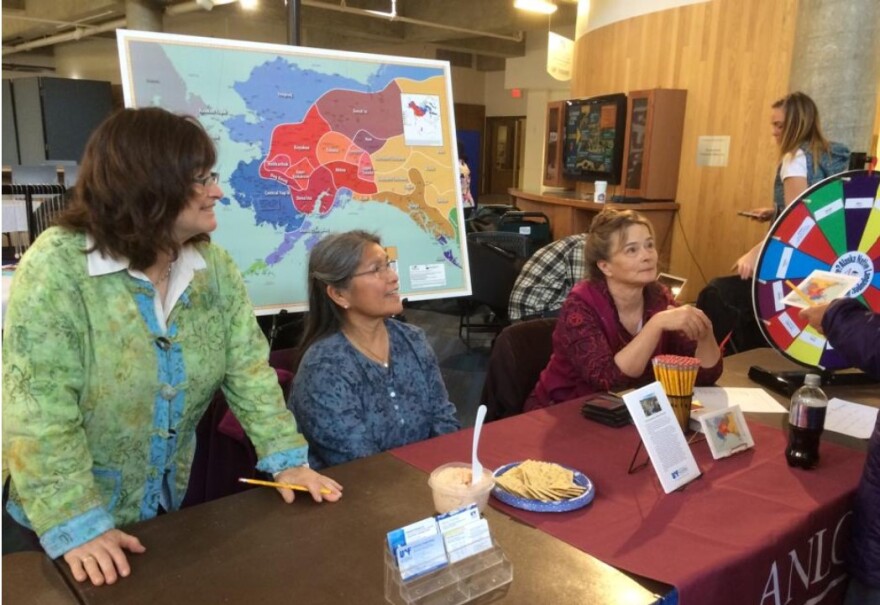The Alaska Native Language Center has moved beyond its original mission of research and is the premiere center for cultivation and promotion of Native Languages. As the University of Alaska system launched degree programs in various languages, graduating students have turned around and become teachers and professors.
“My vision is to see more Alaska Native faculty and Alaska Native leadership in not just at Alaska Native Language Center, but the University Alaska Fairbanks. I think we're getting there, not slowly, but in a very, very good pace.”
That’s Walkie Charles, PhD, the director of ANLC since 2021. He recalled how he was abused for speaking Yup’ik in school.
At a recent panel discussion, speakers said the language center has helped the dominant culture recognize the prestige of Native languages, in spite of colonial programs to wipe them out.
Jackahtah Casey Jack from Stebbins is now an adjunct lecturer in Yup’ik at UAF.
“A lot of people think that age of shame is gone, but you know that shame is carried inside through the generations. You know, I feel it when I speak to my uncle. I feel it when I speak to my anon. They do speak the language well, but I'll never hear them talk it. They went through something when they went to those boarding schools. Something deep inside them is hurt, and that's why it's important for me to, not only learn my language, but to share it with as many people as possible,” he said.
Haliehana Stepetin, a Unungax scholar, dancer, and activist from Akutan, now teaches at UAA. Unangam Tunuu is her heritage language, but she had to learn it.
“I think it's really important to move forward and not continue to perpetuate that shame to new learners. And that means encouraging those who might not have ever heard or whatever language when they can't make those sounds or they can't hear the ng or the ghruh, or the ha or the xuh and the xah, right? They can't hear it because they never heard it, perhaps. So, when I teach, that's a really big part of it for me, is stopping that shaming.”
Speakers pushed back against the idea that scholarship in Native Languages is only recognized in a Western academic framework.
“I’m a grass roots kind of person; I like to do things locally.”
Tatauq Josie Bourdon from Nome has taught Native language in elementary and high schools for 30 years.
But she says every moment speaking her Native Inupiaq is a teachable moment, even while babysitting her grand-nephew.
Siri Tuttle, a former director of the Center, says ANLC’s efforts have now been duplicated across the state and around the world.
“Now there are many more materials. There's much more leadership and open pride and this positive climate for expressing the need for Alaska native languages to endure along with Alaska Native people.”


